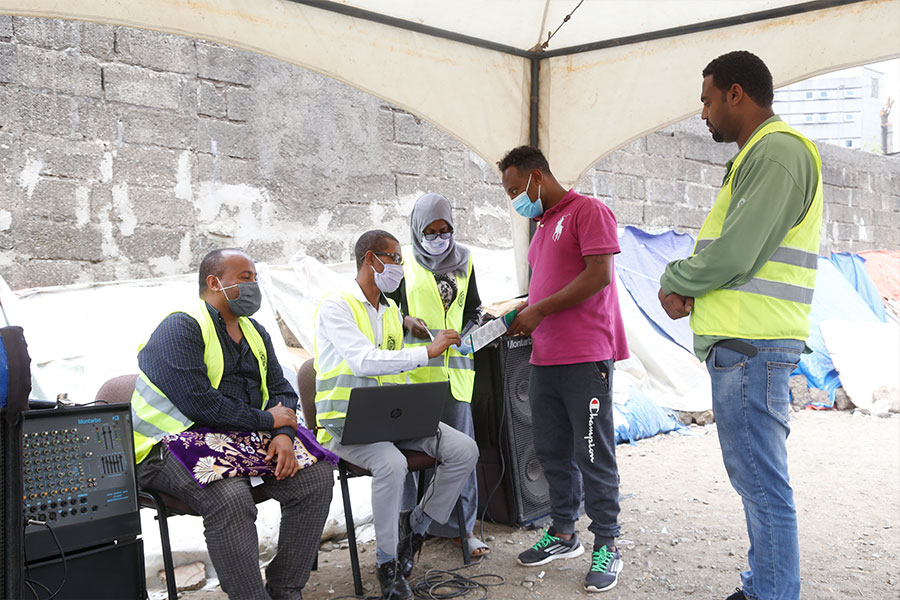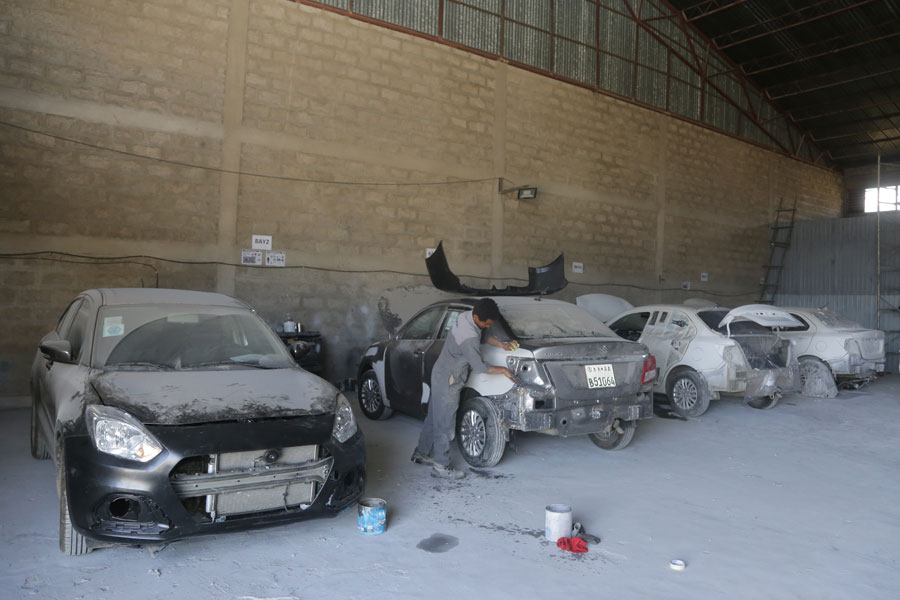
Agenda | Apr 17,2021
Ethiopia will soon have its own Capital Market Authority that will supervise and regulate a new financial market, where equities, bonds and financial derivatives will be transacted, according to a bill drafted by the National Bank of Ethiopia (NBE).
The bill is expected to be legislated before the end of 2020 and also proposes the launch of a secondary market in Ethiopia for the first time. A technical committee comprised of members from the central bank, the Ministry of Finance, the Office of the Attorney General and external advisors, has been working on the bill for the past year.
Having seven board directors, including the Minister of Finance, the Governor of the central bank, the Attorney General, three members representing the private sector and non-governmental institutions and a CEO, the Authority will report to the parliament. The parliament will appoint board directors from the private sector upon the recommendation of the Prime Minister. The directors have a three-year term with the possibility of a term extension.
The CEO and deputy CEO of the Authority, which each must have at least 10 years experience at a senior management level in law, finance, economics or management and have expertise in areas relating to money or capital markets or finance, will be appointed by the parliament on the recommendation of the Prime Minister.
The capital market will be established to support the development of the national economy by mobilising capital, promoting financial innovation, and sharing investment risks, according to the 63-page draft proclamation.
The Authority will regulate the listing and delisting of financial products including bonds and stocks on the trading platform, grant licenses for operation to securities brokers, securities dealers, investment advisers, fund managers, investment banks and collective investment schemes. It will also engage with the approval of operation as a securities exchange and derivatives exchange, among other duties.
The Authority will accord an exchange license to the establishment of the Ethiopian Securities Exchange, which provides the trading platform for financial products and will be established as a share company. The capital of the Ethiopian Securities Exchange is to be determined by the board members of the Authority.
The establishment of the Ethiopian Securities Exchange will have a share composition of no less than five percent and a maximum of 25pc to be allocated to the government. No less than 25pc and not more than 55pc will be allocated for corporations, capital market intermediaries, and international securities exchange operators. A minimum of 20pc and not more than 40pc of the shares will be offered to individuals with a maximum limit of five percent.
While the total shareholdings of international securities exchange operators and other foreign investors are not to exceed 25pc of the Exchange’s capital.
"The idea is to make the market predominantly owned by the private sector," said a source close to the case, "and the government to be a strategic partner and market maker in the process."
However, in the scenario where there might be insufficient demand from citizens, then the maximum limit on shareholding by corporations, capital market intermediaries, and international securities exchange operators can be increased up to 75pc.
In another scenario where there is no interest from citizens, corporations, capital market intermediaries, and international securities exchange operators, the maximum limit on government shareholding can be increased to 100pc.
The Ethiopian Securities Exchange Company will provide the trading platform for capital market products such as equities, debt securities, derivative instruments, units in a collective investment scheme, real estate investment trusts, currency exchange contracts and other products to be declared by the Authority's directive.
"It's likely that the market will kick off with stocks and bonds," said the same source, an individual close to the case. "The other financial market products are listed in order to give breathing space for a legal framework to be in place to be used at a later time."
The bill also grants capital market activities like buying, selling and dealing in financial market products, investment advice, underwriting, fund management, real estate investment trust management, and corporate finance advice relating to acquisitions and mergers.
To handle any kind of dispute in the securities market, the bill also outlined the formation of the Capital Market Tribunal to appeal against the decision of the Authority. Under the appointment of the Prime Minister, the Tribunal will have five members with a chairperson and a vice-chairperson.
The chair and the vice-chair should comply with the requirements the High Court judges should fulfill, while the rest of the members must have experience in law, commerce or accounting. The members will have three-year terms of office and will be eligible for re-appointment for a further three years.
"The idea is commendable; the country might see an increase in the formation of companies, leaving behind the traditional way of raising money," said a macroeconomist who wanted to remain anonymous. "Regardless, on the ground, there are so many bottlenecks that need to be worked on first."
For instance, the government needs to update the current accounting, auditing and disclosure standards to ensure transparency, which is a key in securities exchanges and cannot be built up overnight, according to the expert.
The financial sector needs major reform, including the central bank, in terms of capacity building, and the government should question the supply and demand of where the money will come from since the banks are in the throes of a liquidity crunch. The country does not have that many appealing companies to avail shares of publicly, according to the expert.
"It will take 10 years minimum to have a vibrant market, and the next three years will be a trial period," added the expert.
The expert argues that the expectation of finding international security exchange operators to partake in the Ethiopian Stock Exchange to be unlikely.
"The country doesn't have any oil or gold at its disposal. To think that investors will be interested is a far-reaching hope," he added.
The source close to the case begs to differ on this.
Owning natural resources is not a necessary precondition for the development of the financial market; the growth of the country is an indication of the attention of investors, according to this source.
"We have banks, insurance firms and other huge companies that are interested in joining the market," he said.
PUBLISHED ON
[ VOL
, NO
]

Agenda | Apr 17,2021

Radar | Dec 26,2020

Life Matters | Apr 29,2023

Radar | Jun 25,2022

Radar | Nov 14,2020

Agenda | Jan 21,2023

Fortune News | Mar 14,2020

Fortune News | Feb 12,2022

Fortune News | Apr 22,2023

Fortune News | Aug 20,2022

Dec 22 , 2024 . By TIZITA SHEWAFERAW
Charged with transforming colossal state-owned enterprises into modern and competitiv...

Aug 18 , 2024 . By AKSAH ITALO
Although predictable Yonas Zerihun's job in the ride-hailing service is not immune to...

Jul 28 , 2024 . By TIZITA SHEWAFERAW
Unhabitual, perhaps too many, Samuel Gebreyohannes, 38, used to occasionally enjoy a couple of beers at breakfast. However, he recently swit...

Jul 13 , 2024 . By AKSAH ITALO
Investors who rely on tractors, trucks, and field vehicles for commuting, transporting commodities, and f...

Oct 18 , 2025
The political establishment, notably the ruling party and its top brass, has become p...

Oct 11 , 2025
Ladislas Farago, a roving Associated Press (AP) correspondent, arrived in Ethiopia in...

Oct 4 , 2025
Eyob Tekalegn (PhD) had been in the Governor's chair for only weeks when, on Septembe...

Sep 27 , 2025
Four years into an experiment with “shock therapy” in education, the national moo...